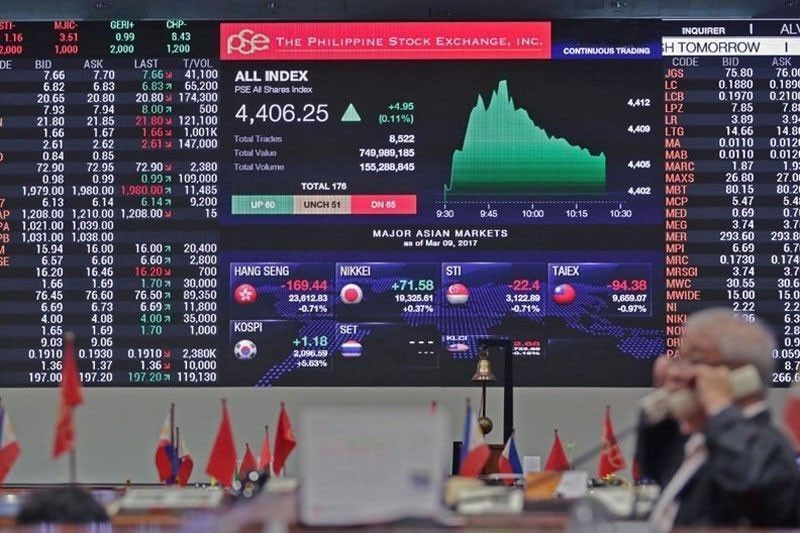Pandemic gives debt-loaded Philippine firms a headache

MANILA, Philippines — The era of cheap borrowing in previous years, which resulted in a pile of debt, is now creating financial strain in local companies.
Corporates lead local borrowers that may face difficulty paying debts as cashflows stagnated when business operations halted due to the pandemic, putting into question a government strategy that heavily relies on the private sector for recovery.
“For some time now, risk prognoses have pointed to the build-up of debt in the low-for-long era,” the interagency Financial Stability Coordination Council (FSCC) said on its latest Financial Stability Report for the first quarter.
“While the level and growth of debt had been frequently cited as possible vulnerabilities, the strains imposed by the pandemic will cause debt servicing difficulties,” it added.
Holding “approximately 60%” of bank loans as of 2019, corporate borrowers are seen with highest risk of default given their heavy debt exposure. As balance sheets constrict due to dismal operations, “impairment in revenues” meant the capacity to sett;e debts will be tested.
The consequences can be massive. As the Duterte administration tries to protect its prized fiscal stability, the government has called on business to spend not only for their own survival, but to assist employees battered by the outbreak. Among companies, airlines, hotels and tourism-related firms have asked the government for rescue, but to no avail.
For bigger conglomerates, resolving a potential cash crunch meant turning to the financial markets. Companies like Ayala Land Inc. and San Miguel Food and Beverage Inc. tapped early the bond market to raise funding in February, proceeds from which would be used to settle maturing obligations this year.
Just this month, telco giant PLDT Inc. returned to the offshore debt market for the first time in 18 years to raise $600 million, a big part of which will be used to pay off liabilities falling due as well as prepay some debts ahead.
The firms form part of the 200 listed companies which the FSCC, chaired by the central bank, said held an outstanding debt worth P9.3 trillion as of last year. Of that amount, 28.4% or P2.64 trillion was denominated in foreign currency, meaning obligations can be costlier due to foreign exchange changes.
For this year alone, $3.46 billion in foreign currency debts, or P173 billion using a P50:$1 exchange rate, are falling due. The amount will come on top of P553 billion in maturing local obligations.
Low probability
Sought for comment, Nicky Franco, research head at Abacus Securities Brokerage, named “aviation, gaming, restaurants and small property companies” as firms which are most likely to struggle paying off debts.
“However, predicting which companies will struggle is a bit more nuanced. Cebu Air Inc., MicroAsia Corp., and Bloombery Resorts Corp., for example, shouldn’t have any issues as they are backed by large conglomerates,” Franco said in an online exchange.
“Restaurants, on the other hand, can adapt by shrinking their footprints and ramping up their online platforms,” he added. Fast-food giant Jollibee Foods Corp. recently announced a P7-billion investment to increase its digital and delivery services, while closing down some underperforming stores.
“It should be pointed out that the debt repayment of some PSE (Philippine Stock Exchange)-listed non-financial corporates was already declining before the emergence of COVID-19…Interest expense has grown by an annualized rate of 20.9%, while earnings before interest and taxes has only grown by 9% over the past three years,” the FSCC report stated.
But Franco is optimistic. “My view, therefore, is that the probability of any PSE listed company defaulting is low. Worst case, loan restructuring is an option that a few firms may take,” he said.
Meanwhile, insurers, which tend to invest in the long-term, are also being watched. Due to the pandemic displacing millions of workers, some clients may be forced to file claims which can create a “mismatch” on expected earnings from insurance funds parked over the long term.
Because of debt strain, FSCC said recent actions by the central bank to lower interest rates to a record-low of 2.75% would not be immediately felt by companies seeking credit “until the repricing of these loans usually a year later.”
- Latest
- Trending































